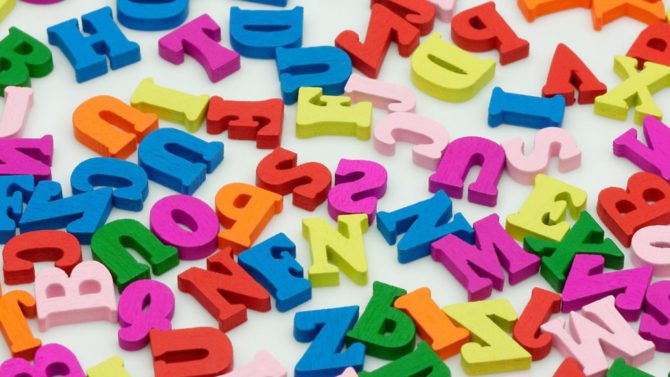36 French acronyms and initialisms explained

Don’t know your CPAM from your CDD? Here are some of the most common acronyms and initialisms you’ll come across in France and what they mean
It can be difficult enough to learn French, and then you realise that there is a whole other language to learn in the form of French acronyms and initialisms, which can be quite the minefield! Here are some of the most common ones you might come across, grouped together by category.
CPAM (Caisse Primaire d’Assurance Maladie) or as the French more commonly call it, la sécu. This is the general health system that deals with giving you your carte vitale (health card) and reimbursing you for all health-related payments.
PUMA (protection universelle maladie) guarantees everyone access into the state health system. In order to apply you must be a legal resident in France.
If you are planning to run your own business you will enter the healthcare system for the self-employed called the SSI (sécurité sociale des indépendants). This was formerly known as the RSI and many people still refer to it as such just to complicate matters further!
SAMU (service d’aide médicale urgente) are the ambulance teams that come out when you dial 15.
SMUR (service mobile d’urgence et de réanimation) is the emergency rapid response team that can be called out by the SAMU if they deem it necessary.
There are two types of contract:
CDI (contrat à durée indéterminée) is an open-ended contract with no end date. Most French people dream of obtaining a CDI as this opens the door to an easier life in terms of getting loans, buying or renting or anything else which requires proof of regular income.
CDD (contrat à durée déterminée) is a fixed-term contract and can be for a temporary cover, or seasonal due to needing more staff during a certain period.
SMIC (salaire minimum interprofessionnel de croissance) is the minimum wage in France and is recalculated very year.
HT (hors taxe) is without VAT.
TTC (toute taxe comprise) is inclusive of VAT.
TVA (taxe sur le valeur ajoutée) is VAT.
When you create a company in France, INSEE (institut national de la statistique et des études économiques) the national institute for statistics and economic studies, assigns you a nine-digit SIREN number (système d’identification du répertoire des entreprises), the business directory identification system that identifies the company and remains the same throughout the life of the company and cannot be changed.
You will also get a SIRET number (système d’identification du répertoire des établissements), the directory of establishments identification system which corresponds to the nine digits of the SIREN number followed by five additional digits called NIC (numéro interne de classement) or Internal Number of Classification.
The SIREN number identifies the company.
The SIRET number identifies each establishment of a single company.
The APE code (activité principale exercée) identifies the branch of activity of the company. This code is used for purely statistical matters, although it must appear in all the legal documents of the company.
You will probably be referred to either the CMA (Chambre des Métiers et de l’Artisanat), the Chamber of Artisans, or the CCI (Chambre de Commerce et d’Industrie), the Chamber of Commerce, depending on the kind of business you are creating, and don’t forget to get an RC Pro insurance (responsabilité civile professionnelle), civil liability insurance.
______________________________________________________________
Don’t miss…..
How does the French healthcare system work?
France ranked best European country to work in
A-Z of buying a French property
______________________________________________________________
CT (contrôle technique) or MOT – whether you are importing or buying or selling a French car you will need a you will need an MOT.
ANTS (Agence Nationale des Titres Sécurisés) – the government website where you will need to register in order to get your CI (certificat d’immatriculation) car registration papers, which used to be known as a carte grise!
SOCIAL
A civil partnership is called a PACS (pacte civil de solidarité).
You may have the right to claim benefits in which case you will apply to the CAF (Caisse des Allocations Familiales).
If you have worked in both France and abroad and can claim a French pension you will want to apply to transfer time worked abroad via the CLEISS (Centre des Liaisons Européennes et Internationales de Sécurité Sociale).
A very topical subject is a CDS (carte de séjour) official residency card and if you are non-European you will need to go through the OFII (Office Français Immigration Intégration), the French immigration authorities.
MISCELLANEOUS
RIB (relevé d’identité bancaire) – your bank details.
SPA (société protectrice des animaux) – the French equivalent of the RSPCA.
SNCF (société nationale des chemins de fer français), the national train service and you may travel on a high-speed train or TGV (train à grand vitesse).
SVP (s’il vous plaît) – please.
To end with I would like to share my own personal favourite acronym:
SPANC (service publique d’assainissement non collectif), the official body responsible for checking septic tanks and ensuring that they comply with regulations. Many a moment of merriment has been had when asking people if they have been ‘SPANCked’!
Madeline Aveson-Gruber is the founder of Aquitaine Lifestyle Solutions
Share to: Facebook Twitter LinkedIn Email


